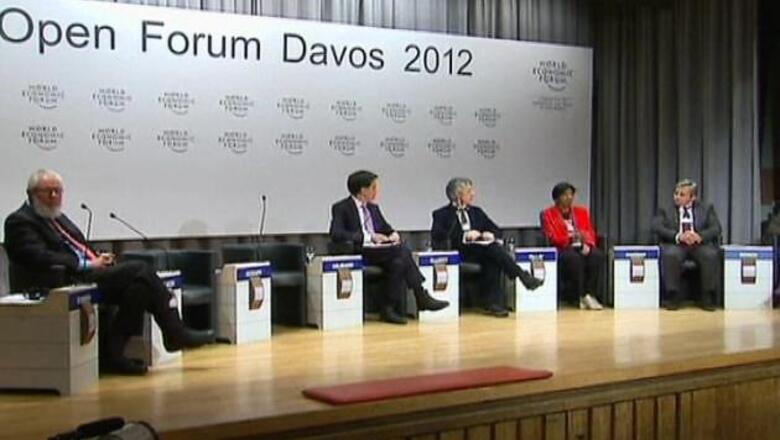
views
The World Economic Forum India 2012 meet being held in Gurgaon from November 6 to November 8 holds special significance not just for India but for the rest of the world. As Europe continues to face massive liquidity crunch, a problem which is only accentuated by negligible or negative growth experienced by key European economies (with the exception of Germany), the world's growth engine is increasingly looking at China, India, Russia, Brazil, Turkey and other emerging economies.
Just on Monday, November 5, Union finance minister P Chidambaram hinted that growth in financial year 2013 could tumble down to 5.5 per cent. What was being feared for a long time may be coming true and Asia's third largest economy may just expand at its slowest pace in a decade.
So a slowdown in India and China will not only hit the economies of these countries but will have a ripple effect in terms of profitability, employment and expenditure all around the world.
"I'm looking forward to this year ending with 5.5 to 6 per cent growth, barring any unexpected shocks, and next year getting back to 7 per cent growth, and in 2014-15 getting back to 8 per cent growth," he said in an interview on Sunday at a G20 meeting in Mexico.
The last time full-year growth fell below 6 per cent was in 2002-03 when the economy grew by 4 per cent. A slump in industrial activity because of slow policy-making and the global slowdown, combined with a drought, have dragged on India's performance this fiscal year, which ends in March 2013.
Until now, the government had estimated growth this year at around 6 per cent. The International Monetary Fund last month slashed its 2012 calendar year economic growth forecast for India to 4.9 per cent from 6.1 per cent.
While to a certain extent, the general unease in the global economy has affected India's growth story, as it has China's as well, any policy watcher in India knows that the UPA-I and UPA-II's sacrifice of reforms at the altar of populism also put brakes on the country's growth.
As schemes like MNREGS, extremely well-meaning in terms of poverty alleviation but thoroughly unwise in its focus on 'non-asset building' earthworks, piled up pressure on the exchequer, tax collection went up by only 36 per cent between 2008 and 2012. However, expenditure has risen by almost 400 per cent in the corresponding time period. The widening gap between outflow and inflow led to very high inflation. It has pinched not just the poor but even the urban middle class, a showcase of India's success story.
The government also hit a raw nerve with the foreign investors as it decided to tax Vodafone in a retrospective manner. That has, for sure, made investors jittery about betting their money on India's growth story.
As talks of policy paralysis gripping a government headed by an economist became national and international headlines, the government was woken up from its slumber. In the last three months, there have been a renewed focus on reforms, FDI in retail being the most talked about.
But is it enough? The World Economic Forum meet is a perfect opportunity for the country to assess the mood of the captains of Indian and international businesses. What do they expect from the government as they seek to create more jobs in the economy?
This is not a one-way street. Write-offs of massive corporate loans and debts (some estimates put it at upwards of $150 billion) have also contributed to the mounting fiscal deficit.
In that light, the World Economic Forum India 2012, that brings together captains of Indian and international businesses, policy makers and academics on one stage, is an ideal platform to gauge where India stands today. What are the expectations of the industry? What does the government feel the industry should do in return? Is the trajectory we are on ensuring inclusive growth? These are several questions which may get clarified at the end of the meet.
IBNLive will cover the World Economic Forum India 2012 extensively so that you gain better insight into India's economic future.
(With inputs from Reuters)




















Comments
0 comment